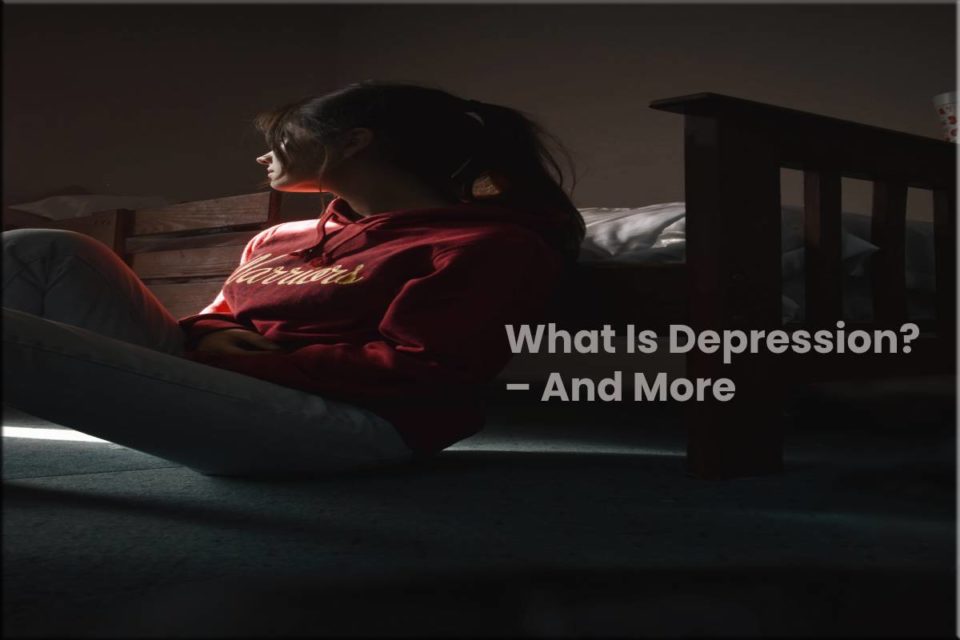Table of Contents
Definition Of Depression
Depression is a prevalent illness worldwide, estimated to affect more than 300 million people. It is different from frequent mood swings and brief emotional responses to everyday problems. It can become a severe health problem, especially when it is long-lasting and moderate to severe intensity and can cause great suffering and disrupt work, school, and family activities.
In many cases, it can lead to suicide.
Nearly 800,000 people commit suicide eac2022-04-12h year, and suicide is the second leading cause of death in the 15-29 age group. Although there are effective treatments for depression, more than half of those affected worldwide (and more than 90% in many countries) do not receive these treatments.
Obstacles to effective care include lack of resources and trained health personnel, in addition to the stigmatization of mental disorders and inaccurate clinical evaluation.
Another barrier to effective care is misjudgment. In countries of all incomes, people with depression often misdiagnosed, while others who don’t have depression of misdiagnosed and treated with antidepressants.
The global burden of depression and other mental disorders is increasing. A resolution of the World Health Assembly adopted in May 2013 called for a comprehensive and coordinated response by countries to the problem of mental disorders.
Also Read: How Often Should You Wash Your Hair? – It’s Factors.
Types And Symptoms Of Depression
A fundamental distinction made between depression in people with and without a history of many episodes.
Two types of depression can be chronic and recurrent, especially when not treated.
Recurrent Depressive Disorder
Repeated episodes of depression characterize it. During these episodes, there is a depressed mood, loss of interest, and the ability to enjoy and reduced energy resulting in decreased activity, all for a minimum of two weeks.
Many people with depression also experience symptoms of anxiety, sleep and appetite disturbances, feelings of guilt and low self-esteem, concentration difficulties, and even symptoms without medical explanation.
Depending on the number and intensity of symptoms, depressive episodes can classify as mild, moderate, or severe.
People with mild depressive episodes will have some difficulty continuing with their usual work and social activities, although they are not likely to suspend them entirely.
On the other hand, during a severe depressive episode, it is doubtful that the patient can maintain his social, work, or domestic activities if it is not with significant limitations.
Bipolar Affective Disorder
This type of depression characteristically consists of manic and depressive episodes separated by intervals with a healthy state of mind.
Manic episodes occur with elevated or irritable mood, hyperactivity, logorrhea, excessive self-esteem, and decreased need for sleep. Furthermore, bipolar disorder is often associated with addiction.
Factors
It is the interaction between social, psychological, and biological factors.
Those who have been through adverse life circumstances (unemployment, mourning, psychological trauma) are more likely to experience depression.
In turn, it can generate more stress and dysfunction, and worsen the life situation of the affected person and, consequently, the depression itself.
There are relationships between depression and physical health; Thus, for example, cardiovascular diseases can cause misery and vice versa.
Prevention Of Depression
Prevention programs can show to reduce depression. Among the effective community strategies to prevent it are school programs to promote a model of positive thinking among children and adolescents.
Interventions targeted at parents of children with behavior problems can reduce parents’ depression symptoms and improve their children’s outcomes.
Exercise programs for older people can also be useful in preventing depression.
Treatments
There are effective treatments. Healthcare professionals may offer psychological therapies, such as behavioral activation, cognitive behavioral therapy, and interpersonal psychotherapy, or antidepressant medications.
Also such as selective serotonin reuptake inhibitors and tricyclic antidepressants.
Health professionals should take into account the possible adverse effects of antidepressants.
And the possibilities of carrying out one or another type of intervention (due to the availability of technical knowledge or the treatment in question), and individual preferences.
Among the different psychological therapies to consider are face-to-face mental treatments. So single or in groups, provided by professionals, or by supervised lay practitioners.
Psychosocial treatments are also active in cases of mild misery.
Antidepressants can be useful for severe sadness.
But not the treatment of choice in mild cases and should not be used to treat depression in children. Or as first-line treatment in adolescents, where they must use cautiously.
Affects
Depression is a frequent mental disorder. Besides, it estimated that it affects more than 300 million people in the world.
It is the leading global cause of disability and contributes very significantly to the overall global burden of disease.
- It affects women more than men.
- Also, it affects people of all ages and social conditions and from all countries.
- In the worst case, depression can lead to suicide.
- There are effective treatments for it.

